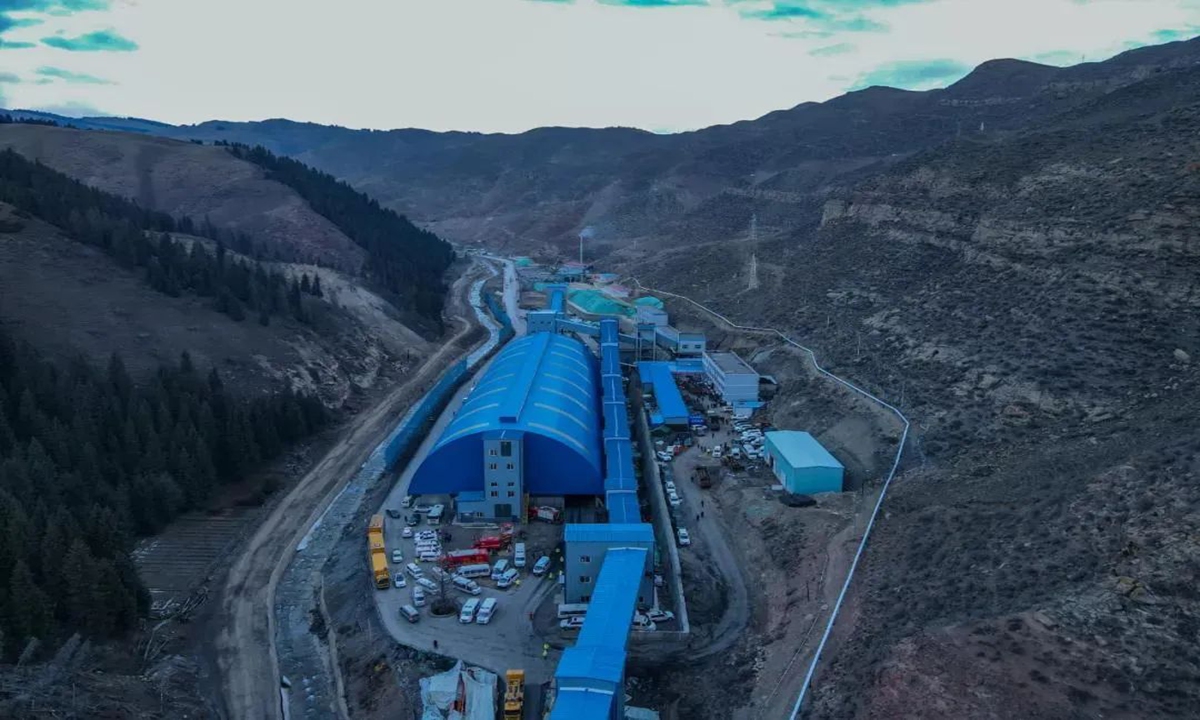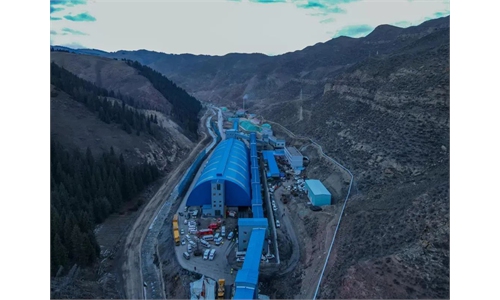
The scene of the coalmine in Hutubi County, Changji Prefecture of Xinjiang encountered a sudden flood while in the process of technical transformation. Photo: CCTV
More than two days after the coal mine flooding accident in Northwest China’s Xinjiang Uygur Autonomous Region, full rescue efforts are continuing for the 21 trapped miners.A total of seven pumping machines were working for drainage, as the rise of the water level slowed down, China Central Television (CCTV) reported.
The flooding took place around 6:10 pm Saturday in Hutubi county, Changji Prefecture of Xinjiang, when the coal mine was undergoing technical transformation, resulting in underground power outage and communication interruption.
At the time of the accident, there were 29 people working in the shaft, eight of whom later ascended and are in good health.
As of Monday morning, the water leak did not stop. In the early hours of Monday morning, rescuers sent a large submersible pump with a pumping capacity of 725 cubic meters per hour down the shaft, which is expected to nearly double the pumping capacity of the rescue site.
A total of seven pumping machines were installed, while rescue workers closely monitored the air quality and water level changes in the well. Eight rescue teams with over 1,400 rescuers have joined the rescue.
In addition to the seven pumps that have been put in place, another two pumps will soon be installed, and there are more than 20 units of spare pumps, Bao Yongsheng, deputy governor of Changji Prefecture, told Xinhua Monday night. “Now the drainage capacity is seven times higher than it was initially as the rescue continues to accelerate.”
Bao said the expert group has been working to locate the leak, and will develop technical solutions and implement drilling and water plugging work at the leak as soon as possible.
The monitored oxygen content down the shaft is still more than 20%, showing no signs of gas or other toxic gases exceeding the standard, said rescuer Wang Wen.
“The water level is still rising, but now at one centimeter per hour, which is slower than the previous period,” Wang said.
Compared with other disasters such as gas and coal dust explosions, the difficulty of rescue work for flooding is lower, and trapped people tend to have better survival chances, said Zhang Shoubao, an associate professor of safety engineering at the China University of Mining and Technology.
In response to the accident, the State Ministry of Emergency Management pointed out Monday that it should do its best to reduce casualties, while reporting to the State Council to thoroughly investigate the cause of the accident and seriously pursue responsibility.

